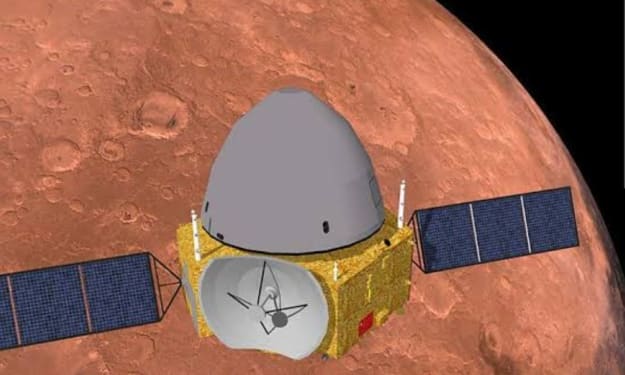ARE WE ALONE?
Is there life outside earth?

Are we alone in the universe? This is a question that has fascinated humanity for centuries. The idea of life beyond our planet has captured the imagination of people from all walks of life, and many scientists have dedicated their careers to searching for evidence of extraterrestrial life. While we have yet to find concrete evidence of intelligent life beyond our planet, recent studies suggest that the universe may be teeming with life, and the implications of this are both exciting and sobering.

One of the most promising areas of study in the search for extraterrestrial life is the field of astrobiology. Astrobiology is an interdisciplinary field that combines elements of astronomy, biology, and geology to study the origin, evolution, and distribution of life in the universe. Through the use of space telescopes, rovers, and other scientific instruments, astrobiologists have been able to explore other planets and moons in our solar system and beyond, looking for signs of life.
There are various progrms on the search of extraterrestrial life like SETI or Breakthrough Listen but one of the most exciting recent developments in the search for extraterrestrial life is the discovery of exoplanets – planets that orbit stars other than our Sun. In 2016, NASA’s Kepler spacecraft discovered a potentially habitable exoplanet orbiting a star called Proxima Centauri, which is the closest star to our solar system. The exoplanet, called Proxima b, is roughly the same size as Earth (1.07 earths) and orbits its star in the habitable zone – the region where conditions are just right for liquid water to exist on the planet’s surface. Liquid water is a key ingredient for life as we know it, so the discovery of Proxima b has raised hopes that there may be other planets out there with the potential to support life.

Another promising area of study is the search for biosignatures – signs of life that can be detected from a distance. One of the most promising biosignatures is the presence of oxygen in a planet’s atmosphere. Oxygen is produced by photosynthetic organisms, such as plants, and it is unlikely to be produced in large quantities by non-biological processes. In 2019, astronomers detected the first ever biosignature on an exoplanet – a molecule called phosphine, which is produced by anaerobic bacteria on Earth. While the detection of phosphine is not definitive proof of life, it is a tantalizing hint that there may be life on other planets.
So what would happen if we discovered intelligent life beyond our planet? The implications of such a discovery are both exciting and sobering. On the one hand, it would be a major scientific breakthrough that would expand our understanding of the universe and our place in it. It would also raise profound philosophical and theological questions about the nature of life, consciousness, and the meaning of existence.
On the other hand, the discovery of intelligent life could be a threat to our own existence. An alien species that is more intelligent than humans could potentially view us as a threat or as a resource to be exploited. They could have technology that is far more advanced than our own, and they could pose a serious threat to our planet and our way of life.

The possibility of hostile aliens is not just the stuff of science fiction. In 2015, renowned physicist Stephen Hawking warned that the discovery of intelligent life could be a “risk” to our planet. He argued that we should be cautious about sending messages into space or attempting to make contact with extraterrestrial civilizations, as we have no way of knowing what their intentions might be.
Despite the potential risks, many scientists believe that the search for extraterrestrial life is worth pursuing. The discovery of life beyond our planet would be a major scientific milestone that would expand our understanding of the universe and our place in it. It could also have practical benefits – for example, if we discovered extraterrestrial microbes.






Comments
There are no comments for this story
Be the first to respond and start the conversation.